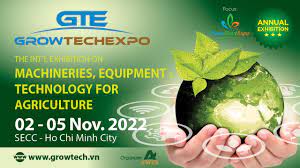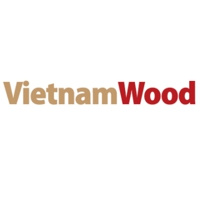
The first Vietnam Economic Forum was held in Ho Chi Minh City. Photo: Nguyen Thuy.
On June 5, the Central Economic Commission held the 4th Vietnam Economic Forum with the theme "Building an independent and self-reliant economy associated with extensive economic integration in the new situation". Attending the meeting was Prime Minister Pham Minh Chinh.
Head of the Central Economic Commission Tran Tuan Anh said that the socio-economic development strategy for 2021-2030, adopted at the 13th Party Congress, has determined the point of view that "Building an autonomous economy must be based on technology owners and actively and actively integrate and diversify markets, improving the adaptability of the economy. New national production capacity must be formed with self-reliance, effective participation, improved position in global value chains and effective resilience to large and unusual external impacts. Promoting internal resources is a decisive factor associated with external forces and the strength of the times.
This year's forum has many special features, which it is held in Ho Chi Minh City - a special city, a growth pole that plays the role of an important economic locomotive of the whole country, a dynamic and recovering city. strong recovery after the Covid-19 pandemic.
According to Head of the Central Economic Commission Tran Tuan Anh, after 35 years of doi moi, Vietnam has achieved impressive development achievements with outstanding results such as an increase in the size of Vietnam's economy by 12 times, the average income per capita increased 8.3 times, import-export turnover increased 29.5 times, foreign direct investment (FDI) increased 22 times, the poverty rate nationwide from 58% in 1993 to only 2 ,23% in 2021 according to the new standard.
From a poor, backward and underfed country, Vietnam has risen to become a middle-income country with GDP per capita reaching US$2,779 by 2020 and one of the major exporters of agricultural products in the world. world.
Up to now, Vietnam has had diplomatic relations with 189/193 UN member states, including strategic partnerships and comprehensive partnerships with 30 countries; Vietnam has trade relations with over 220 partners, 71 countries have recognized the market economy status for Vietnam; signed and participated in 15 free trade agreements, including many new-generation free trade agreements.

Head of the Central Economic Commission Tran Tuan Anh. Photo: Nguyen Thuy.
In order to achieve the above achievements, the Head of the Central Economic Commission Tran Tuan Anh said that the key factor is the correct guidelines and policies of the Party and State on socio-economic development, especially in construction. building an independent, self-reliant and proactive economy, actively integrating into the world.
However, the head of the Central Economic Commission Tran Tuan Anh said that besides outstanding achievements, the economy's self-control capacity, adaptability and resilience to shocks or external impacts are also feebleness. The autonomy of the economy is strongly influenced by fluctuations in production activities in the foreign investment sector and some large markets.
In the economic structure, the FDI sector contributes up to 20.13% of GDP, accounting for 72% of the total export value. FDI enterprises dominate 12 out of 24 processing and manufacturing sub-industries, playing a dominant role in four of Vietnam's five largest export industries: textiles, footwear, electronics, and manufacturing. furniture and import-substituting processing and manufacturing industries such as rubber plastics, base metals and mechanical products.
"Experience from other countries shows that Vietnam cannot successfully industrialize and modernize if it only relies on FDI," said Mr. Tran Tuan Anh.
The results of the analysis of the IO interdisciplinary structure show that the Vietnamese economy is basically a capital-intensive economy, and processing and assembly are the main ones. Although the innovation index ranking has improved, the fundamental factors are still low. Total spending on research and development of Vietnam both public and private reached only 0.53% of GDP in 2019, much lower than the world average at 1.7%; innovation capacity is still low, the number of Vietnamese patents granted by prestigious international agencies is only 1/3 of Thailand, 1/11 of Malaysia, 1/3170 of China; patent rate/1 million population is 0.21 ranked 91st out of 141 countries; The number of patents granted to Vietnamese people only accounts for 4.62% of the total number of patents granted.
Regarding the autonomy of the industry, the head of the Central Economic Commission said that Vietnam must import most of the technology, machinery, equipment, spare parts and main raw materials for industrial production.
The technological level of industrial enterprises is still low, most of them are using technology that is 2-3 generations behind the world average.
In the field of agriculture, Vietnam must import over 70% of machinery and equipment for agriculture; varieties of some crops and livestock still depend on imports, typically 80% of vegetable varieties and 60% of maize varieties.
"Overall, it shows that Vietnam's economy is highly integrated, has great openness, but focuses on a few markets, and the structure is unsustainable, leading to dependence," said the head of the Central Economic Commission. price.
The credit rating agency S&P has upgraded Vietnam's long-term credit rating from BB to BB+, noting that Vietnam's economy is on a solid recovery track and forecasting Vietnam's GDP growth in 2022 at around 6 percent. 9% with a long-term trend of 6.5% - 7% from 2023.
Over the past two years, the Vietnamese economy has faced a series of unprecedented difficulties caused by the Covid-19 pandemic. Economic growth below 3%, the lowest in the past 30 years; millions of workers lost their jobs; thousands of businesses had to suspend production to fight the epidemic; tourism, transportation, hotel and restaurant industries and many other industries are seriously affected; capital market and real estate market have abnormal fluctuations; bad debts in the banking system are at risk of increasing again.
However, under the leadership of the Party, Government, and Prime Minister, the transition to the state of "Safe adaptation, flexibility, effective control of the Covid-19 epidemic" has had remarkable results. Vietnam's economy is continuing to gradually return to the fast growth trajectory as before the pandemic.
The economy in the first quarter of 2022 has returned to a high growth momentum, reaching over 5%. The fields of export, investment, and consumption all increased strongly, and investors' confidence increased sharply.
"The impact of the recent pandemic along with the appearance of many new events in the international context, typically the Russia-Ukraine conflict, has been asking Vietnam to speed up and be more drastic. more substantive and effective than building an independent and self-reliant economy associated with extensive and effective international integration", Mr. Tuan Anh said.
According to the head of the Central Economic Commission, to achieve the goal by 2030, Vietnam will become a developing country with modern industry, high middle income, and by 2045, a developed country with high income An urgent, key, consistent and long-term task is to build a dynamic, fast and sustainable, independent and self-reliant economy on the basis of science, technology, and innovation. associated with improving efficiency in foreign affairs and international integration.

Chairman of Ho Chi Minh City People's Committee Phan Van Mai. Photo: Nguyen Thuy.
Speaking at the Forum, Chairman of the Ho Chi Minh City People's Committee Phan Van Mai said that the Vietnam Economic Forum was held in Ho Chi Minh City, an opportunity for international organizations, diplomatic agencies, and the business community. Foreign businesses in the City understand more deeply, share the heavy losses and damage that the City has experienced as well as witness the efforts that both the political system and the people of the City are urgently trying to achieve. implemented to bring the City back to the new normal soon.
Mr. Mai also said that over the years, Ho Chi Minh City has implemented many economic programs to support businesses to participate in the global value chain at stages with high added value for all products. goods and services.
“In order to effectively attract FDI, the role of the domestic economic sector must be enhanced, especially the importance of the private sector. This is a process that needs the support of many general policies on the macro level. The Forum hopes to make many contributions on a scientific and practical basis to concretize the Party's line and policy of "building the economic independence and self-reliance in the new situation”, said Chairman of Ho Chi Minh City People's Committee Phan Van Mai.






.png)